Newsletters
20 March 2018

In each issue of our newsletter, we interview an SIArb member to get their views on the alternative dispute resolution scene in Singapore, and to obtain some insight into what makes them tick.
In this issue, we interview Mr. Jayems Dhingra, Chartered Arbitrator
How would you describe yourself in three words?
Independent, Impartial, Neutral.
What is your favourite dish?
Mamak Mee Goreng
How did you first get involved in arbitration work?
About 25 years ago as a Claimant’s representative, I went through the bitter experience of a mismanaged arbitration matter. After wasting 16 to 18 months trying to match the diaries of the counsels and the arbitrator, I took over the case from the counsel and the matter was resolved amicably between the Parties within half a day, with the outcome as per the Claimant’s preferred solution.
This episode caused me to learn more about ADR processes and do my best for the benefit of the industry to remove impediments caused by ignorance of the parties about the ADR processes.
What is the most memorable arbitration or arbitration-related matter that you were involved in, and why?
It was about a dispute arising from an Offshore Oil & Gas Pipe Laying project, involving multiple parties in the background.
The complexity of the dispute was caused by the simplicity of the defined scope of works which were subjected to weather patterns, supply chain members and diversity of nationalities and languages of the operational personnel.
It was memorable for me that due to my industrial experiences in the construction, offshore and marine industries, I was able to understand the witnesses easily. The parties and their witnesses felt at ease during the oral hearings sessions. There was a wide spectrum of activities undertaken at different locations, shipyards, ashore and at sea. It was not an easy task to decide the issues and write an award, which made me spend more than 60 days and nights to analyse the whole scenario, before publishing an award. This is what made this matter memorable for me.
As an arbitrator, what in your view are the key qualities or traits an arbitration counsel should possess when representing a party?
I have been fortunate to meet cooperative and professional counsels thus far, except for couple of instances. The good quality of the counsels makes the arbitrator’s task easier and is beneficial to their clients irrespective of the outcome. I have no doubt that my learned colleagues know much better than an arbitrator, the qualities and traits essential as a counsel representing a party in an arbitration matter. However since this question is posed to me, I will answer from my view point based on my personal experiences and observations that, I would love to have counsels with following qualities and traits (PRACTICE) as a minimum, though I am always ready and willing to learn more from different types of counsels.
- Punctuality - adhere to the agreed time lines;
- Respectful – do not hurl insults on the counsels of the opposing parties in front of the tribunal and the party representatives, even if there are some personal grudges or scores to settle; • Active – be actively engaged in the subject matter and not treat the case like one of the many litigation cases pending on the table;
- Cost-Conscious – always endeavour to minimize the cost and time to be incurred by the clients and avoid unwarranted procedural challenges to cause delays;
- Tactful – should not create jurisdictional or tribunal appointment challenges, unless absolutely essential and with more than 90% confidence that it will be sustainable;
- Initiative – should show initiative to prioritize the main issues and resolve secondary issues by consultation between the counsels and the parties;
- Cooperative – it is good to agree on usual procedural matters without a need for a tribunal to decide. The cooperation is normally beneficial to the parties and reflects high quality of professionalism of the counsels; and
- Efficient – finally be efficient in submissions and pleadings. It doesn’t help in delivering a container load of boxes full of files and papers on an arbitrator. Better to be focussed than take chances on voluminous submissions.
What are the challenges you think arbitration practitioners will face in the upcoming years?
With varieties of tools and options at the disposal of the parties, practitioners will be spoiled for choices. Third Party Funding, choice of ADR forums, institutions and service providers with branches for borderless access, are some of the new challenges which could surface during enforcement of arbitral awards in several jurisdictions in the future.
There is a danger that the parties and or their advisors may lose focus of the issues in dispute and be carried away in capitalising on procedural advantages, to cause harassment to their opponents.
What advice do you have for a young fellow practitioner interested in developing a career as an arbitrator?
First and foremost one should not treat being an arbitrator as another career, unlike a barrister or a solicitor or a professional from any industry.
One should have the passion to resolve disputes between international commercial entities with an underlying objective of creating confidence in arbitration as the just and fair dispute resolution forum, irrespective of nationalities, personalities and communities, thereby supporting the growth in trade and global economy.
The professionals from legal sectors and various industries can develop a passion for building One World Order through neutral dispute resolution forums. The combination of passion, expertise in their respective fields, and knowledge of the laws and practice of arbitration are some of the basic ingredients for becoming an arbitrator.
What do you think will be the impact of the One Belt One Road Initiative on arbitration? Do you expect a major increase in disputes arising out of OBOR projects?
The detailed answer to this question may be found in my latest paper titled as, “Can Seamless Flow of Trade And Sustainability of OBOR Economies be Fathomed Without Harmonization of Trade Laws And Adoption of UN Model Laws?” presented during UNCITRAL Conference held on 11 December 2017 at Macau, organized by UNCITRAL and University of Macau.
The brief answer is that, before the questions of disputes between the parties involved in OBOR projects arise, it is essential to focus on harmonizing the laws between the participating economies. This is causing great pressure and immense workload on international law firms and law making bodies of the respective OBOR nations.
The volume of disputes will depend on the quality of the legislations and treaties drafted by the authorities, and contracts between the parties, in the coming years.
What is one talent that not many people know you have?
Adaptability and ability of comprehension (based on the diversity of my experiences over the last 42 years).
What’s your guilty pleasure?
Sea-water? Watching Korean Drama every night before sleeping.
Who would play you in a movie of your life?
Lee Jung Jin
SIArb Newsletter Issue 24 (15 December 2017)
|
|||||||||||||||||||||||||||||||||||||||||||||||||||||||||||||||||||
PRESIDENT'S MESSAGE
DECEMBER 2017
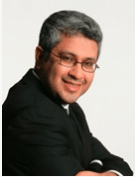
2017 has been a significant year for Arbitration in Singapore and for the SIArb. As the year comes to an end, it is a time not only to reflect and give thanks but also to recharge and prepare for 2018.
SIArb celebrated its 36th Anniversary with a memorable dinner at Aura, National Gallery on 1 November. The organisers of the dinner, led by Tan Weiyi and assisted by our secretariat, Intellitrain repeated the success of last year’s dinner at the same venue. We thank our Guest of Honour, Mr VK Rajah SC, for his insights on the important issue of ethics in International Arbitration which has given us much food for thought. We also just concluded an excellent Symposium on 16 November at the iconic Old Parliament House. Kudos to Tay Yu-Jin and his committee on a sterling job done.
2017 saw Singapore implement legislation to allow third party funding for international arbitration. SIArb introduced guidelines for third party funders after a public consultation. These guidelines are on our website and to-date, 6 established funders have publicly expressed their support and endorsement for these guidelines. I would like to thank my fellow working group members, Chan Leng Sun SC, Tay Yu-Jin and Sapna Jhangiani for their invaluable assistance on these guidelines.
Another SIArb Working Group comprising Chan Leng Sun SC, Mohan Pillay, Rian Mathews and Adriana Uson have recently completed draft guidelines on party representative ethics. Arbitration is ultimately but a process where the ultimate objective is justice. Ethics are integral to this end objective. These guidelines are presently in the public consultation phase. We welcome your views on the draft guidelines.
We have also been more active internationally. In March, Leng Sun delivered a talk to the Japan Association of Arbitrators on training of arbitrators and arbitration practices. Earlier in the year, a group of trainers led by Naresh Mahtani conducted training for delegates from the Institute of Modern Arbitration in Moscow. I also recently returned from the Regional Arbitral Institutes Forum in Hong Kong. Next year’s Forum will be held in Indonesia and we will disseminate more information in 2018 once available. I encourage members to attend the regional forum, as we will be stronger the more connected we are with the world around us.
In an article in the Straits Times on 6 October, the Advocate General of Scotland, Lord Richard Keen who is also Britain’s Ministry of Justice spokesman for the House of Lords said he viewed Singapore as among the “premier league” of litigation and arbitration centres worldwide, with a pool of outstanding lawyers and a respected judiciary. In an article published by the International Bar Association on 27 October, Singapore was described as the “new Mecca” for arbitration in Asia. The Permanent Court of Arbitration is to set up an office to manage hearings in held in Singapore and Asia, and the ICC Court has announced it will set up a case management office in Singapore in 2018.
Singapore’s success as an arbitration centre is built on the hard working shoulders of those who have come before us. SIArb which was founded in 1981 with just 25 founder members has certainly played its part. They had a vision for the promotion of arbitration and the improvement of standards. Today we have 932 members. I hope 2018 will be the year we go beyond 1,000.
Success however comes with its own challenges. Being in the premier league is not an entitlement. Ask any football fan – there is always fear of relegation. We have a duty to build upon the success that has been achieved. One of SIArb’s key roles has been in education and training. We will relook at our course offerings and materials and ensure that they are the best in class. As our Guest of Honour, Mr VK Rajah SC, quipped at our recent Annual Dinner, we should be aiming for the “Champions League”.
As an arbitral institute that is privileged to carry the “Singapore” name, we have a duty to do all we can to live up to the quality and integrity that has come to be associated with the Singapore identity. Many members of this Institute are not necessarily Singaporean but I am confident that you all feel connected to Singapore and identify with what it stands for. Our logo since this year comes with the tagline “Asian Sensibilities, Global Standards” – what does that mean? It means we are an institute that is based in Asia, knows Asia and is committed to the shared values and aspirations of our region. At the same time, we must aim for the “Champions League” in terms of global standards.
Finally, I am happy to introduce you the new Chairs of the various SIArb Committees;
| Committees | Chair(s) |
| Activities |
Chair: Mr Andrew Pullen
Vice Chair: Ms Adrienne Kouwenhoven
|
| Arbitration Bar | Mr Tay Yu-Jin |
| Continual Professional Development (CPD) |
Chair: Mr Francis Goh
Vice Chair: Mr Andrew Pullen
|
| Education & Training | Mr Naresh Mahtani |
| External Relations |
Chair: Mr Chan Leng Sun
Vice Chair: Mr Chia Ho Choon
|
| Membership | Ms Tan Weiyi |
| Panel Arbitrators Review | Mr Chia Ho Choon |
| Publications & Website | Mr Yeo Boon Tat |
| Scheme Arbitration | Mr Chia Chor Leong |
I encourage all members to participate in the numerous projects and programmes of SIArb, whether as Committee members or on ad hoc basis.
I wish all of you the very best wishes for this holiday season and the very best for 2018.
President,
SIArb 2017-2019
15 December 2017
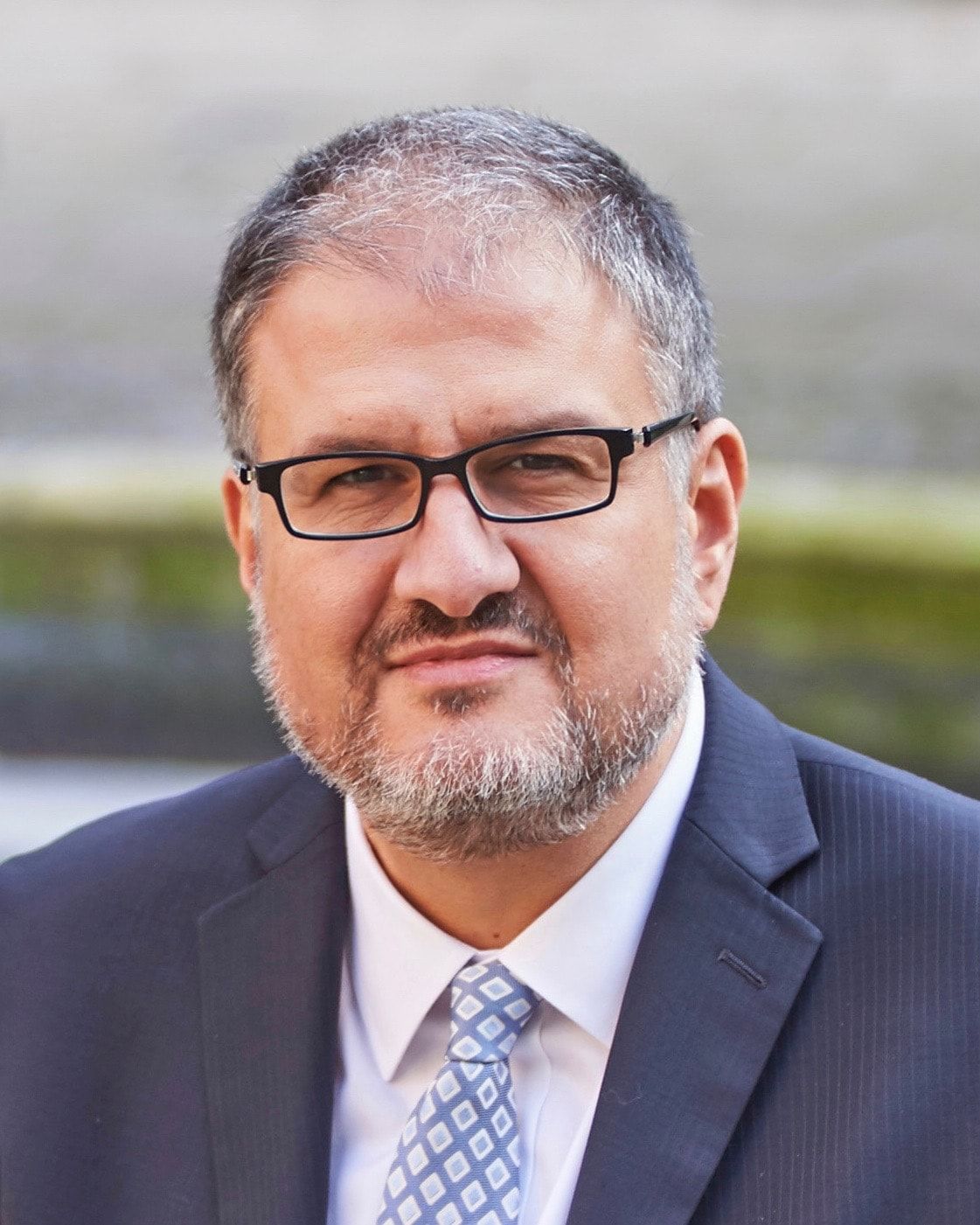
In each issue of our newsletter, we interview an SIArb member to get their views on the alternative dispute resolution scene in Singapore, and to obtain some insight into what makes them tick.
In this issue, we interview Professor Benjamin Hughes of Seoul National University
How and why did you make the switch to become a full time arbitrator?
I left my previous firm as of 1 March 2013, which ironically is Independence Day in Korea. I decided I wanted to sit as an arbitrator full time, which is very difficult to do at a large law firm due to conflicts. I really enjoy the work as arbitrator, and I wanted more independence, more control over my schedule and more time with my kids. Of course I have taken a financial hit, but it has been more than worth it.
What does it mean to be an honorary citizen of Seoul, Korea?
It’s an honor given by the mayor of Seoul, for which I am very grateful. I was jointly nominated in 2011 by the Korean Bar Association and the Korean Commercial Arbitration Board. I thought I might get some special privileges, like maybe the express line at the airport, but no such luck!
What is your favourite Korean dish?
My problem is that I love them all. First came to Korea in 1991, intending to stay for one year. People always assume that I stayed longer because of my wife, who is Korean, but we didn’t meet until five years later. The truth is I stayed for the food. Bulgogi, kimchi chigae, sundubu, doenjang chigae, bibimbap, bindaedeok, the list goes on and on. If you have not tried it, you must come visit Seoul.
What is a typical year for you - how do you divide your time between the different hats you wear and the different countries in which you practise?
I have been an independent arbitrator since 2013, but since March 2015 I have also been on the faculty at Seoul National University Law School, where I teach two courses per semester. Fortunately we have two very long breaks in the summer and winter, and many holidays in between, so scheduling overseas arbitration hearings has not been a problem. But I do spend a lot of time on planes and in airports…
What is the most memorable arbitration or arbitration-related matter that you were involved in, and why?
That’s a tough one, as there are many memorable cases. I think every arbitrator remembers his or her first case. Mine was a small case in Korea, in which I was appointed chair and the language of the arbitration was supposed to be English. When we turned up for the hearing, however, counsel for Respondent could not proceed in English. So in addition to being nervous about conducting my first hearing as arbitrator, the parties agreed to proceed in Korean! We made it through, luckily, and the parties settled shortly after the hearing.
As an arbitrator, what in your view are the key qualities or traits an arbitration counsel should possess when representing a party?
The ability to get to the heart of the matter. As Einstein said, keep things as simple as possible, but no simpler. Many arbitrations these days are cluttered with unnecessary procedural and even substantive arguments which do not assist the tribunal in resolving the dispute, but only cause expense and delay for the parties.
What advice do you have for a young fellow practitioner interested in developing a career as an arbitrator?
Find a good mentor. When I was trying to make this transition, many experienced arbitrators were incredibly kind and generous with their candid advice and guidance. I think all of us in this field have an interest in mentoring the next generation of arbitrators. Don’t be shy about approaching more senior arbitrators with questions or for advice. Most are delighted to share their experiences and expertise.
You speak English, Korean, Spanish and Chinese. Rank them in order of difficulty.
Well, for me obviously English is the easiest. But I have to admit that Spanish is the most approachable language for foreigners, and should probably be the world’s lingua franca rather than English. Chinese is also relatively easy for English speakers to learn, because the syntax is similar to English and the grammar is very simple. Korean is without doubt one of the most difficult languages in the world. The syntax is completely counterintuitive to English speakers, and the grammar is incredibly complex. Everything is conjugated, including verbs, adverbs and adjectives, and the culture of hierarchy and social relationships is built into the grammar and vocabulary. So, for example, just to ask someone if they have had lunch (a common greeting), there are three different verbs, three different nouns, and many different ways to conjugate, all of which will vary depending on your relationship to the person you are asking!
Would you rather win an Olympic medal, an Academy Award or the Nobel Peace Prize?
Hmm… I suppose those of us in dispute resolution should say the Nobel Peace Prize. I once played a bit part in a Korean television drama, and I can assure you that I will never be nominated for an Academy Award!
Who would play you in a movie of your life?
Denzel Washington
SIArb Newsletter Issue 23 (26 September 2017)
|
|||||||||||||||||||||||||||||||||||||||||||||||||||||||||||||||||||||||||||||||||
Latest Events
| 01 Jul 2024 SIArb Young Practitioners Network Mentoring Programme 2024 |
| 29 Aug 2024 - 29 Aug 2024 03:00PM - 07:00PM A Masterclass in Mediation Advocacy |
| 09 Oct 2024 - 09 Oct 2024 05:30PM - 07:15PM SIArb Lecture 2024 |
| 18 Oct 2024 - 19 Oct 2024 08:00AM - 12:00AM [IN-PERSON] SIArb Fellowship Assessment Course 2024 |
Site designed and maintained by Intellitrain Pte Ltd. Copyright © Singapore Institute of Arbitrators. All rights reserved.

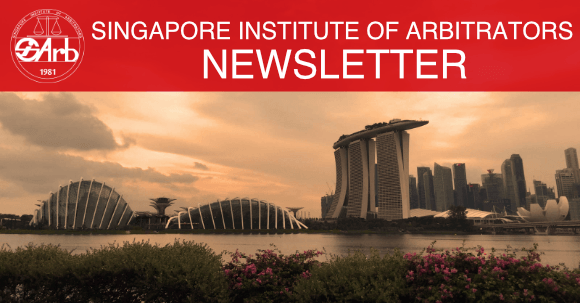
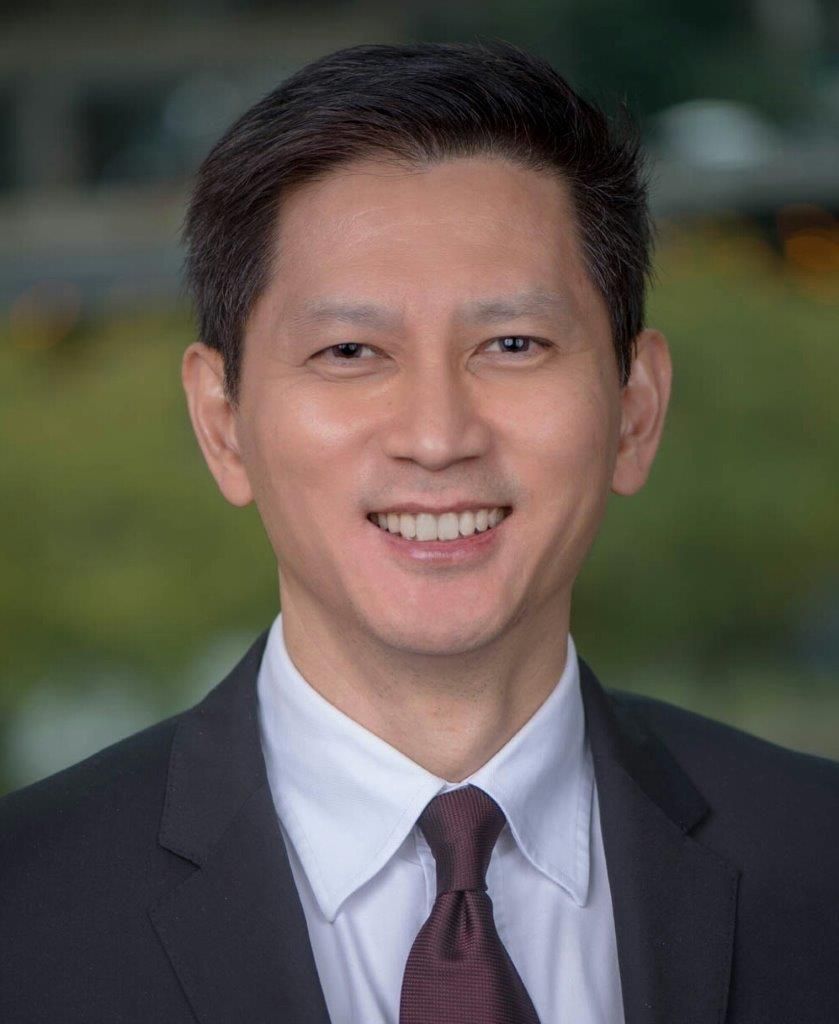
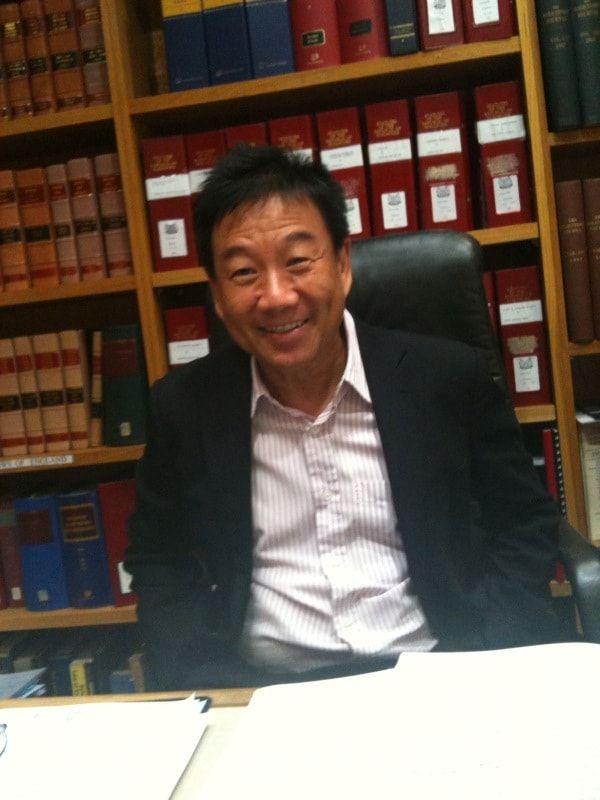 Jason is the Head of the Litigation and Dispute Resolution Practice at De Souza Lim & Goh LLP. He obtained his LLM degree from University College, London. He was called to the Bar of England & Wales in 1982 and was admitted to the Singapore Bar in October 1983.
Jason is the Head of the Litigation and Dispute Resolution Practice at De Souza Lim & Goh LLP. He obtained his LLM degree from University College, London. He was called to the Bar of England & Wales in 1982 and was admitted to the Singapore Bar in October 1983.